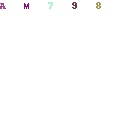Beware Blog Confusion
Here is blogland, we tend to assume that everyone understands blogs - from the basic idea of what a blog is to how they work, how users navigate on them, and how to search them and make use of blogrolls and other links. But as a recent study from Catalyst Group Design shows, if you are planning to use blogs as a marketing tool, that could be a major mistake.
In the study (download the PDF here, dramatically titled "Net Rage," Catalyst concludes that:
Even assuming mainstream interest, current blog design standards – at least in terms of navigation, nomenclature and taxonomy – are a barrier to consumer acceptance. In fact, the design of most blogs can incite “net rage” (in the words of one test participant).
So what is the problem?
What does this mean for marketers? Before you launch of a blog with a marketing goal, you need to understand who will be reading it. If it's a blog-savvy audience, the usual blog formats will probably work fine. Otherwise, expect confusion.
You will need to modify the usual blog templates to make navigation crystal clear. You will need to clearly mark blog pages as part of the blog, not your web site. You need to explain how commenting works. You need to make it easy to find older posts and get back to the main page.
The blog signifiers that many of us take for granted have yet to take on meaning for mainstream audiences. This doesn't mean blogging should be discarded as a marketing tool; but it does mean that you need to pay attention to usability issues that might not be important for a blog designed for readers more familiar with the medium.
In the study (download the PDF here, dramatically titled "Net Rage," Catalyst concludes that:
Even assuming mainstream interest, current blog design standards – at least in terms of navigation, nomenclature and taxonomy – are a barrier to consumer acceptance. In fact, the design of most blogs can incite “net rage” (in the words of one test participant).
So what is the problem?
- Participants in the study weren't sure that they were looking at blogs, or what that meant.
- While viewing a Business Week blog, participants didn't understand that they were looking at something different than the standard content on the magazine's web site.
- The commenting process was very confusing. Users weren't sure whether their comments would appear right away, be held for moderation, or be considered for inclusion by an editor.
- Lower level pages caused particular problems, as users did not realize they were part of a blog.
- Users weren't sure how to find older posts or use archives.
- Users weren't clear what the blog's home page was or what its purpose was.
- RSS - forget it. People didn't understand it.
What does this mean for marketers? Before you launch of a blog with a marketing goal, you need to understand who will be reading it. If it's a blog-savvy audience, the usual blog formats will probably work fine. Otherwise, expect confusion.
You will need to modify the usual blog templates to make navigation crystal clear. You will need to clearly mark blog pages as part of the blog, not your web site. You need to explain how commenting works. You need to make it easy to find older posts and get back to the main page.
The blog signifiers that many of us take for granted have yet to take on meaning for mainstream audiences. This doesn't mean blogging should be discarded as a marketing tool; but it does mean that you need to pay attention to usability issues that might not be important for a blog designed for readers more familiar with the medium.


0 Comments:
Post a Comment
<< Home